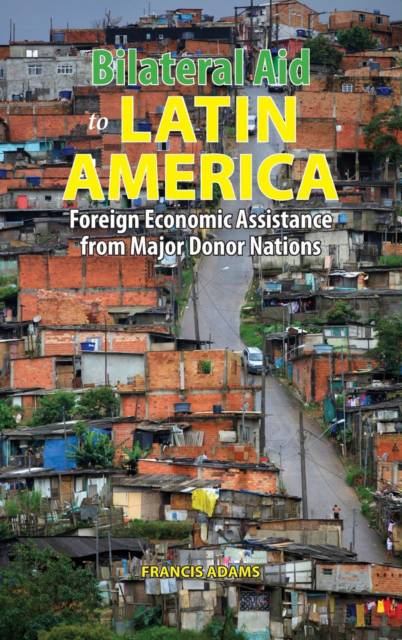
- Afhalen na 1 uur in een winkel met voorraad
- Gratis thuislevering in België vanaf € 30
- Ruim aanbod met 7 miljoen producten
- Afhalen na 1 uur in een winkel met voorraad
- Gratis thuislevering in België vanaf € 30
- Ruim aanbod met 7 miljoen producten
Zoeken
Bilateral Aid to Latin America
Foreign Economic Assistance from Major Donor Nations
Francis Adams
Hardcover | Engels
€ 177,45
+ 354 punten
Omschrijving
This book offers a comprehensive, detailed account of the bilateral economic assistance of six major donor nations-the United States, Canada, the United Kingdom, Spain, Japan, and China-to the nations of Latin America. Focus is placed on assistance that is structured to meet basic human needs, enhance social equity, promote economic growth, preserve natural environments, and support political reform. It thus offers a basic foundation for understanding the nature, impact, and motivations of such assistance to Latin America. This study also offers a series of recommendations for reforming economic assistance to Latin America, with emphasis placed on improving the design, implementation, and oversight of development projects, enhancing coordination among aid institutions, ensuring local control and ownership of the development process, and empowering poor communities. When the poor are active participants in improving their communities, they gain the knowledge, skills, and resources necessary to meet their own needs on a long-term basis. Since economic assistance will continue to be a major component of the foreign policies of donor states, it will be important to ensure that such assistance genuinely contributes to positive, meaningful, and lasting change in the region. Bilateral Aid to Latin America is an important volume for university libraries and research institutes. It will augment collections that focus on Latin America, international development, and economic assistance. The book would also be relevant for scholars and practitioners of Latin American development, as well as undergraduate and graduate courses on Latin America and international political economy.
Specificaties
Betrokkenen
- Auteur(s):
- Uitgeverij:
Inhoud
- Aantal bladzijden:
- 290
- Taal:
- Engels
Eigenschappen
- Productcode (EAN):
- 9781604979060
- Verschijningsdatum:
- 15/06/2015
- Uitvoering:
- Hardcover
- Formaat:
- Genaaid
- Afmetingen:
- 152 mm x 229 mm
- Gewicht:
- 594 g

Alleen bij Standaard Boekhandel
+ 354 punten op je klantenkaart van Standaard Boekhandel
Beoordelingen
We publiceren alleen reviews die voldoen aan de voorwaarden voor reviews. Bekijk onze voorwaarden voor reviews.











